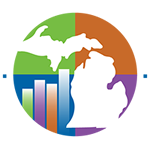Top 10 Accessibility Questions
Who will know if a student has a disability?
It is the student’s choice whether they elect to disclose their diagnosis with faculty or staff. AS will only discuss student information regarding the arrangement of their accommodations. Details of a diagnosis will only be shared with a specific party once a student has provided written permission to AS. However, a student electing to utilize academic and classroom accommodations must provide their professors with a copy of their Accommodation Letter every semester if they intend to utilize their accommodations.
What privacy laws are applicable to students with disabilities?
The Family Educational Rights and Privacy Act (FERPA) of 1974 (20 U.S.C. § 1232g; 34 CFR Part 99) protects the privacy of our students educational records. All notes and medical documentation submitted to AS is kept completely separate from the student’s academic record. AS cannot divulge a student’s diagnosis without their written permission.
What qualifies as a disability?
A disability is a physical or mental impairment that substantially limits one or more major life activities. Major life activities related to education include, but are not limited to: walking, sleeping, eating, learning, reading, writing, processing, hearing, etc.
What is an accommodation?
An accommodation is an adjustment made to a policy and/or the environment to ensure a student with a disability has equal opportunity to benefit from the education process. An accommodation could be an auxiliary aid, services, or adjustments to course materials, campus programs, information, activities, housing, dining, and other campus facilities. Accommodations will vary from student to student.
What is a fundamental alternation?
A “fundamental alteration” means a change made that is so significant that it alters the essential nature of goods, services, facilities or accommodations offered. Accommodations serve to remove barriers in education but do not fundamentally alter any essential requirement, objective or components of a course or program. Accommodations cannot lower any requirement of a class, program or event.
What is an accommodation letter?
An accommodation letter is provided to eligible students who are registered with Accessibility Services. The letter states what accommodations a student is eligible to utilize. The letters expire every semester. Students may hand deliver a physical copy to you or email it directly to you. All students are strongly encouraged to share their letter with their professor/s the first week of classes and have a discussion regarding their accommodations. This provides both the student and instructor an opportunity to ask and answer any questions either party might have.
What are the types of accommodations on campus?
Academic Accommodations: Common examples are permission to record lectures, accessible seating, priority registration, course notes support, alternative format textbooks and use of assistive technology.
Testing Accommodations: Typically these are test proctoring provided in an alternative testing location (LSSU Testing Services), extended test time, distraction reduced testing environment, use of computer for typing or other assistive technology.
Campus Accommodations: Examples include classroom adjustments, accessible housing and dietary accommodations.
Are classroom accommodations different from accommodations provided at an internship, field work, clinical site, practicum or other school sponsored activity?
Yes, they can be. Accommodations are created on an individual, case by case basis. Accommodations may need to be reviewed and adjusted depending on the learning environment. For example, a site visit prior to the start of an internship may be necessary in order to determine how best to remove barriers for the student.
Do we provide accommodations to students with temporary health impairments?
Yes, the ADA does not stipulate that an individual must experience a disability for a specific amount of time. Students with temporary health conditions should be referred to Accessibility Services and accommodations need to be provided.
How does a student get connecting to AS?
Students can contact or call (906) 635-2355 to initiate the process of requesting accommodations. While some students enter the University with an IEP (Individualized Education Plan) or 504 Plan from high school, a medical diagnosis, or a history of receiving accommodations, others may need assistance seeking a medical diagnosis or have recently experienced a health issue.

